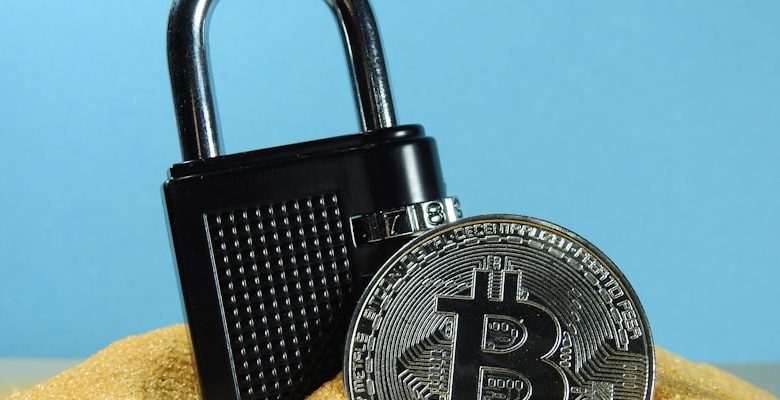How to Educate Yourself About Crypto Security Risks

- Understanding the Basics of Crypto Security
- Identifying Common Crypto Security Risks
- Steps to Protect Your Crypto Assets
- Importance of Secure Wallets in Crypto Security
- Educational Resources for Learning about Crypto Security
- Staying Updated on the Latest Crypto Security Threats
Understanding the Basics of Crypto Security
When it comes to crypto security, it is essential to understand the basics in order to protect your investments and personal information. Cryptocurrencies are decentralized and digital, making them vulnerable to various security risks. By educating yourself on these risks, you can take proactive measures to safeguard your assets.
One of the fundamental aspects of crypto security is the importance of using secure wallets. Wallets store your cryptocurrencies and serve as a means of accessing and managing your funds. It is crucial to choose a reputable wallet provider that offers robust security features such as two-factor authentication and encryption.
Another critical aspect of crypto security is the practice of using strong passwords. Weak passwords can make it easier for hackers to gain access to your accounts and steal your cryptocurrencies. Make sure to use complex passwords that include a mix of letters, numbers, and special characters.
Additionally, it is crucial to be cautious of phishing scams and fraudulent websites. Hackers often use deceptive tactics to trick individuals into revealing their sensitive information. Be wary of unsolicited emails, messages, or advertisements that request your personal details or login credentials.
Lastly, staying informed about the latest crypto security threats and best practices is key to protecting your assets. Follow reputable sources, such as cybersecurity blogs and news outlets, to stay up-to-date on emerging risks and security trends. By staying vigilant and proactive, you can minimize the likelihood of falling victim to cyber attacks and safeguard your investments in the world of cryptocurrencies.
Identifying Common Crypto Security Risks
When it comes to educating yourself about crypto security risks, it is crucial to first identify the common threats that exist in the cryptocurrency space. By understanding these risks, you can better protect your investments and personal information. Some of the most prevalent security risks in the crypto world include phishing attacks, malware, exchange hacks, and wallet vulnerabilities.
Phishing attacks are a popular method used by hackers to steal sensitive information such as login credentials and private keys. These attacks often involve sending fraudulent emails or messages that appear to be from a legitimate source, tricking users into revealing their personal data. Malware is another common threat that crypto investors face, as malicious software can infect devices and steal sensitive information without the user’s knowledge.
Exchange hacks are also a significant concern in the crypto industry, as hackers have targeted numerous trading platforms in the past to steal funds from users. It is essential to research and choose reputable exchanges with robust security measures to minimize the risk of falling victim to a hack. Additionally, wallet vulnerabilities are a prevalent issue, with hardware and software wallets being susceptible to attacks if not properly secured.
Steps to Protect Your Crypto Assets
Protecting your crypto assets is crucial in the ever-evolving landscape of digital currencies. By taking proactive steps to secure your investments, you can minimize the risks associated with crypto security threats. Here are some essential measures to safeguard your crypto assets:
- Use a hardware wallet: Consider storing your cryptocurrencies in a hardware wallet rather than keeping them on an exchange or online wallet. Hardware wallets offer an extra layer of security by keeping your private keys offline.
- Enable two-factor authentication (2FA): Implementing 2FA adds an extra step to the login process, making it harder for hackers to gain access to your crypto accounts. Use 2FA wherever possible to enhance your security.
- Keep your software up to date: Regularly update your wallet software and any other crypto-related applications to patch vulnerabilities and protect against potential security breaches.
- Use strong, unique passwords: Avoid using the same password for multiple accounts and create complex passwords that include a mix of letters, numbers, and special characters. Consider using a password manager to securely store your login credentials.
- Be cautious of phishing scams: Be wary of unsolicited emails, messages, or websites that request your personal information or login credentials. Verify the authenticity of any communication before providing sensitive data.
Importance of Secure Wallets in Crypto Security
Secure wallets play a crucial role in safeguarding your cryptocurrency assets. Without a secure wallet, you are putting your funds at risk of theft or hacking. It is essential to choose a wallet that offers robust security features to protect your investments.
When selecting a wallet, look for options that provide two-factor authentication, encryption, and offline storage capabilities. These features add layers of security to your wallet, making it more challenging for hackers to gain access to your funds. Additionally, regularly updating your wallet software can help prevent vulnerabilities that could be exploited by cybercriminals.
By using a secure wallet, you can have peace of mind knowing that your cryptocurrency holdings are safe from potential threats. Investing in a reputable wallet is a small price to pay for the security and protection it offers. Take the time to educate yourself on the various wallet options available and choose one that aligns with your security needs and preferences.
Educational Resources for Learning about Crypto Security
When it comes to learning about crypto security risks, having access to educational resources is crucial. There are various platforms and tools available that can help you understand the importance of securing your cryptocurrency investments. Here are some valuable educational resources to consider:
- Online Courses: Platforms like Coursera, Udemy, and Khan Academy offer courses specifically focused on crypto security. These courses cover topics such as wallet security, private key management, and protecting against phishing attacks.
- Webinars and Workshops: Participating in webinars and workshops conducted by experts in the field can provide valuable insights into the latest security threats and best practices for safeguarding your crypto assets.
- Forums and Communities: Engaging with online forums and communities dedicated to cryptocurrency security can help you stay updated on emerging threats and learn from the experiences of other users.
- Security Blogs: Following reputable security blogs like The Hacker News, Krebs on Security, and Schneier on Security can keep you informed about the latest vulnerabilities and security incidents in the crypto space.
- Whitepapers and Research Papers: Reading whitepapers and research papers published by security experts and organizations can deepen your understanding of the technical aspects of crypto security and provide insights into advanced threat mitigation strategies.
By leveraging these educational resources, you can enhance your knowledge of crypto security risks and empower yourself to make informed decisions when it comes to protecting your digital assets.
Staying Updated on the Latest Crypto Security Threats
Staying updated on the latest crypto security threats is crucial for anyone involved in the cryptocurrency space. By staying informed about the newest risks and vulnerabilities, you can better protect your assets and investments. One way to stay informed is by following reputable cybersecurity blogs and news sources that regularly report on crypto security threats.
Additionally, joining online forums and communities dedicated to cryptocurrency security can provide valuable insights and updates on emerging threats. Engaging with other members of these communities can also help you learn about best practices for keeping your crypto assets secure.
Attending conferences and workshops focused on cryptocurrency security is another great way to educate yourself about the latest threats. These events often feature industry experts who share their knowledge and insights on how to protect your assets from cyber attacks.



